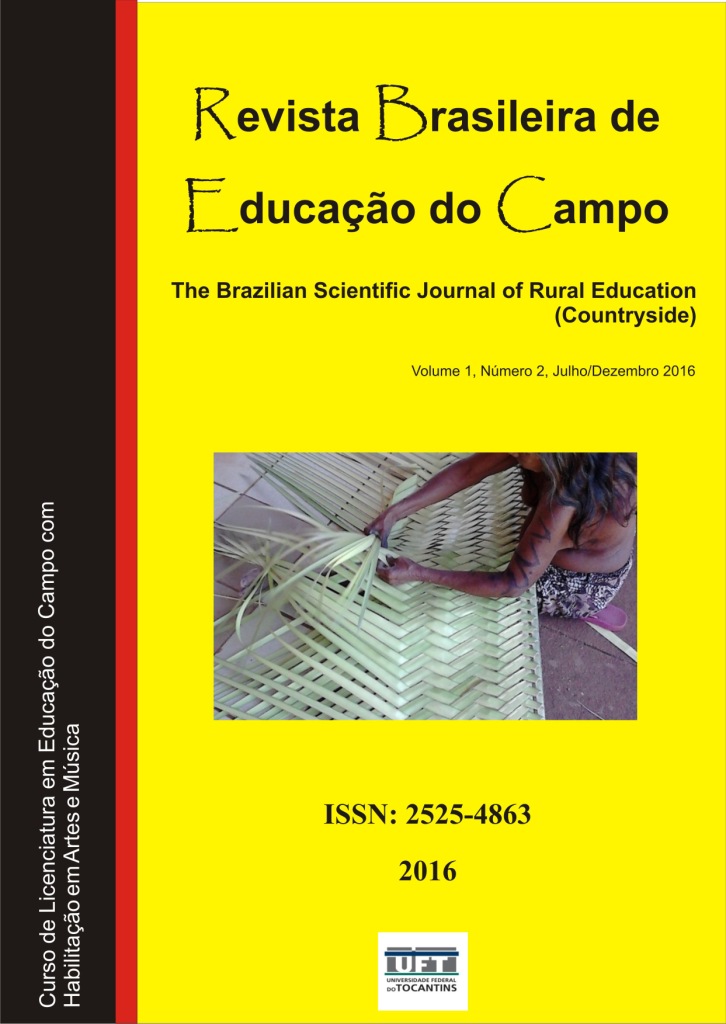Por una Educomunicación Ciberpopular: Activismo y Diálogo en Medios Digitales
DOI:
https://doi.org/10.20873/uft.2525-4863.2016v1n2p550Palabras clave:
Educomunicação, Cibercultura, Jornalismo, AtivismoResumen
ABSTRACT. This paper analyzes, with a theoretical framework centered on Jurgen Habermas and Paulo Freire, spaces for the performance of educational communication in a popular culture mediated by digital in popular terms, what we call here a ciberpopular culture. The goal is to show how this scenario could provide a dialogical and alternative educational communication from finding the double condition of the concept of massification and reflection provided by Freire's dialogic education and four models of action reflected from Habermas's division between System and the Lifeworld.
Descargas
Citas
Brecht, B. (2005). Teoria do rádio (1927-1932). In: Meditsch, E. Teorias do Rádio. Florianópolis: Insular.
Bucci, E. (2002). Televisão objeto: a crítica e suas questões de método. (Tese de Doutorado). Universidade de São Paulo.
Deleuze, G., & Guattari, F. (2007). Mil Planaltos. Lisboa: Assírio & Alvim.
Freire, P. (2005). Pedagogia do Oprimido. Rio de Janeiro: Paz e Terra.
Grossman, L. (2006). “TIME’s Person of the Year: You”. TIME. Vol. 168, nº 26, New York: TIME, 25/12/2006.
Habermas, J. (1984). Mudança Estrutural da Esfera Pública. Rio de Janeiro: Tempo Brasileiro.
Habermas, J. (1989). The Theory of Communicative Action. Boston: Beacon.
Habermas, J. (2001a). Progresso técnico e mundo social da vida. In: Habermas, J. Técnica e ciência como “ideologia”. Lisboa: Ed. 70.
Habermas, J. (2001b). Técnica e ciência como "ideologia". In: Habermas, J. Técnica e ciência como “ideologia”. Lisboa: Ed. 70.
Habermas, J. (2004). A Ética da Discussão e a Questão da Verdade. São Paulo: Martins Fontes.
Howe, J. (2009). O Poder das Multidões. Rio de Janeiro: Elsevier-Campus.
Keen, A. (2007). The Cult of the amateur. New York: Doubleday.
Morin, E. (1967). Cultura de Massas no Século XX – O Espírito do Tempo. R. J.: Forense.
Morin, E. (1977). Cultura de Massas no Século XX – O Espírito do Tempo: volume II (Necrose). Rio de Janeiro: Forense.
Nobre, M. (2004). A Teoria Crítica. Rio de Janeiro: Jorge Zahar Editor.
Tapscott, D., & Williams, A. D. (2006). Wikinomics. New York: Portfolio.
Vasconcelos, M. L. M. C., & Brito, R. H. P. (2006). Conceitos de educação em Paulo Freire. Petrópolis: Vozes.
Venâncio, R. D. O. (2007). Difusão Metropolitana e Divulgação Científica. São Paulo: Plêiade.
Venâncio, R. D. O. (2010). Massificação e Jornalismo. (Dissertação de Mestrado). Universidade de São Paulo.
Venâncio, R. D. O. (2013). Jogo Lógico e a Gramática do Rádio. (Tese de Doutorado). Universidade de São Paulo.
Wright Mills, C. (1981). A Elite do Poder. Rio de Janeiro: Zahar.
Publicado
Cómo citar
Número
Sección
Licencia
Proposal for Copyright Notice Creative Commons
1. Policy Proposal to Open Access Journals
Authors who publish with this journal agree to the following terms:
A. Authors retain copyright and grant the journal right of first publication with the work simultaneously licensed under the Creative Commons Attribution License that allows sharing the work with recognition of its initial publication in this journal.
B. Authors are able to take on additional contracts separately, non-exclusive distribution of the version of the paper published in this journal (ex .: publish in institutional repository or as a book), with an acknowledgment of its initial publication in this journal.
C. Authors are permitted and encouraged to post their work online (eg .: in institutional repositories or on their website) at any point before or during the editorial process, as it can lead to productive exchanges, as well as increase the impact and the citation of published work (See the Effect of Open Access).














